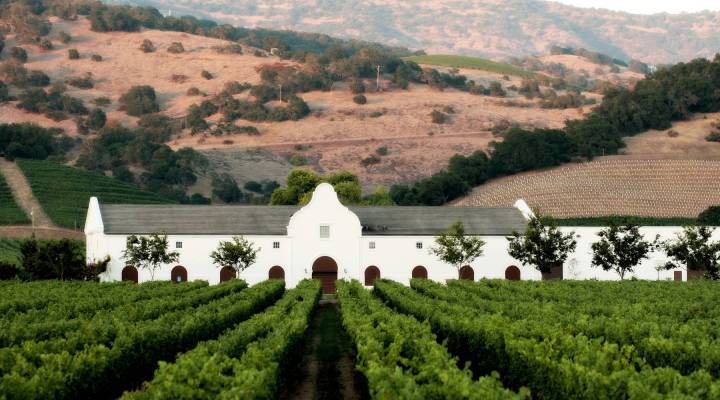
How to be a winemaker

Everyone has a dream job growing up: doctor, vet, ice cream taste tester. But how do you actually get the gig? Marketplace Weekend is looking into how, with the occasional series, How to be a…
Elizabeth Vianna is the winemaker and general manager at Chimney Rock Winery in Napa Valley, CA. She has been in the winemaking business for 20 years — she started as a harvest intern at Chimney Rock while completing her masters in enology at UC Davis, and became the vineyard’s winemaker in 2005. These are her tips for how to become a winemaker:
My name is Elizabeth Vianna and I’m the winemaker and general manager at Chimney Rock Winery in Napa Valley. I would say that one of the first things that you need if you’re interested in being a winemaker is being an analytical thinker, and you have to enjoy science. A lot of concepts of biology, chemistry, physics and math are involved. It’s great if you have an artistic component to your personality because there is a creative aspect of wine. And I think the most important component in my view is passion for what you do. I think there’s a little bit of a myth that it’s a very romantic, glamorized job, but it is actually very physically demanding, and you really have to work hard.
There are a lot of different paths to becoming a winemaker. You could go to school and study it as an undergraduate, or you could get a graduate degree if you have a background in the sciences. A chemical engineer could transition into winemaking, or a biologist could transition into winemaking, and that was my path. You could also get into winemaking by working in it. I certainly have friends who started working in a cellar and slowly build a career as a winemaker just working in the industry.
Elizabeth Vianna of Chimney Rock Winery.
There are several programs in the country where you can actually study viticulture, or enology. I got my master’s at UC Davis, that was my path. Once you’ve got the academic background, or even before you do that, you do internships at a winery. You can get an internship in the cellar, or in the lab, or in the vineyards and you want to try to get internships that are as well-rounded as possible so that you really cover the different aspects of winemaking.
You have to drink a lot of wine, that’s one of the most important parts. You really have to keep perspective and make sure that you’re tasting wines from all over, not just from the area that you’re making wine in. I find it really helpful to be in tasting groups … you learn to taste critically that way. I always laugh because I think winemakers can actually take the fun out of any wine. We love to dissect wine and try to find flaws or try to find the imperfections.
There’s never a dull moment in winemaking. When the grapes are harvested in the fall, it’s go time. It’s super high energy, we’re out there in the vineyards in the morning, then we’re crushing grapes. All of the decisions made at that time are really going to determine what the wines of that vintage are like. Then winter comes around and your wines are now in barrel, and now you’re traveling around the country doing winemaker dinners and maybe you’re working on pruning in the vineyards. And then the spring comes around and you’re working on blending your new wines and you’re planning for harvest. You’re never just at a desk. You’re inside, outside, and if you like being outdoors, it’s a great profession.
I think every wine is special. Every wine comes from a vintage that was different and unique, and that’s kind of what is so romantic and beautiful about wine. But I would say that there are vintages that we become more attached to, because maybe they’re tied to events in our lives. A vintage like 2017, we had fires in Napa Valley. I’ll never forget that, because it tied to a really important experience as a person.
Being a woman in the wine industry is just like any other field that is male dominated. I was really fortunate that I had a lot of great mentors, both male and female. You, I would say, probably have to work doubly hard, but it is changing, just like any other field. When I was at UC Davis getting my master’s, the ratio of men to women was 50-50. Like every other field, women are progressing and doing extremely well in winemaking.
There’s a lot happening in the world. Through it all, Marketplace is here for you.
You rely on Marketplace to break down the world’s events and tell you how it affects you in a fact-based, approachable way. We rely on your financial support to keep making that possible.
Your donation today powers the independent journalism that you rely on. For just $5/month, you can help sustain Marketplace so we can keep reporting on the things that matter to you.












